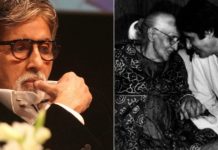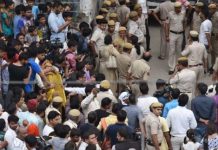 Reading a tell-all tale is almost commonplace these days. But, when it comes from the former head of the Inter Services Intelligence (ISI), Pakistan it always makes it to the headlines. Such is the case with Asad Durrani’s new book, Pakistan Adrift: Navigating Troubled Waters. What makes the topic hotter is that this is the first time that a Director-General of ISI has presented a candid insight on the tussle that has plagued Pakistan for ages — that of the military with the political class.
Reading a tell-all tale is almost commonplace these days. But, when it comes from the former head of the Inter Services Intelligence (ISI), Pakistan it always makes it to the headlines. Such is the case with Asad Durrani’s new book, Pakistan Adrift: Navigating Troubled Waters. What makes the topic hotter is that this is the first time that a Director-General of ISI has presented a candid insight on the tussle that has plagued Pakistan for ages — that of the military with the political class.
Before reading the book, it is advisable for readers to understand where Durrani himself comes from. Asad Durrani is a three star general in Pakistan’s army. He headed the ISI from 1990 to 1992, a time which saw Pakistan’s transition from being a military state to a democratic one. Durrani brings much insight from his stints as an Ambassador in Germany as well as Saudi Arabia, whereupon he attempts to present an international perspective of the upheavals at his home country.
While the book primarily talks about about Pakistan’s transition state, Durrani does not shy away from presenting his opinion on the political class, especially, Benazir Bhutto. Benazir, according to him was overtly dependent on the USA and UK and paranoid about losing power, even as her government flagrantly immersed itself into corrupt practices. The author ever so succinctly declares his disapproval of Bhutto’s ways in the given excerpt:
“My last encounter with her was in 2006 in Doha on the sidelines of a US–Islam conference sponsored by the Brookings Institute, a Washington-based think tank. During the meeting, it became quite clear that she was anxious to get back home with the help of America and the army. As she said, these were the only two ‘A’s that counted. I do not know if the other two revered in Pakistani folklore, Allah and Awam (the people), ever figured in her calculations, but I am sure she had no idea that her death would be most mourned by the masses she so ignored.”
Although the former ISI chief holds back nothing when it comes to Benazir Bhutto, his attempts to criticize former Pakistan President, Pervez Musharraf can be termed rather timid. At certain points, Durrani goes on to laments the fact that the despite of positive developments, the Musharraf era was lampooned by critics when the president left. The author points out that Musharraf’s greatest weakness was his overconfidence which led him to think he could even get away with murder. However, Durrani accepts that he was not ‘comfortable’ with the decision to remove Musharraf, although, he too was part of it. “Though he was aware of my views on some of his decisions while in power, he and his wife still attended the weddings of my children,” Durrani writes.
Throughout the book, the reader is given the sense that Durrani is tiptoeing around the concept of military rule, trying to portray is as the ideal rule which failed on its own accord. He writes that everytime the Pakistan’s military took power, it delivered better than its political counterpart in terms of economic as well as foreign relations. What the author cleverly observes is that military and the political class has been tactically cutting each other off from power; an example he draws from the Bhutto- Ayub Khan tug of war.
“After lording over the country for 13 years, the Ayub/Yahya combine had to cede the reins to Zulfiqar Ali Bhutto, who had fallen out with his military godfather (Ayub Khan). Zia’s exit made way for the triumphal return of the Bhutto clan, whose head he had hanged. And Musharraf’s departure promptly brought back the two political forces that he considered to be the most evil,” he writes. Of course, democracy or not, Pakistan’s military has heavily dictated its political members to act as stage props wherever the army deemed necessary. It, in fact, relies heavily on the judiciary to to endorse its takeover and legitimize its rule.
However, Durrani also believes that the Pakistani army hides under the burden of its own expectations. “The problem is that it does not believe that any other institution could do better. The impasse gets compounded because people expect more from the army regardless of its role or its limitations,” the author writes.
On the India-Pakistan relationship front, Durrani’s opinions takes safe ground as he steers clear of any hardline stand, even going as far as to vaguely mention that, at present, most of the polls in Kashmir indicate majority support for an independent stand , as opposed to staying with India to joining Pakistan. He also explain, in terms of discussion, the joint statement of January 6, 1997 by India’s late Prime Minister Atal Bihari Vajpayee and then President Pervez Musharraf stills stands strong. The author explains it in the following lines, “The very fact that the framework evolved in 1997 had survived nuclear tests, the Kargil episode, a military coup, 9/11 and the standoff of 2002, proved that it was a robust construct… The logic of the composite dialogue was prudently based on resolving contentious issues at a deliberate pace.”
Vajpayee’s attempts to secure peace between the two countries finds mention in another section of the book. When is was getting evidently clear that the arch enemies and nascent nuclear powers might engage in a potential nuclear war, it was Vajpayee, on whom all dependent to take a strong step. That the former prime minister did when he took the famous bus yatra to Lahore in February 1999. In Lahore signed the signed a declaration with then Pakistan Prime Minister Nawaz Shariff heralding another era of “nuclear confidence-building measures and attempted to revive the peace process.”
However, like instances in the past, this time too the peace process was put on hold when Pakistani troops occupied the Indian side of the Line of Control (LOC) in Kargil. Pervez Musharraf taking over the Shariff government in an apparent coup did not help placate matters between countries either, with India reluctant to engage in peace talks with the military in power. However, it was Vajpayee again who initiated the peace process by inviting Musharraf for the Agra summit in July 2001. According to Durrani, this time, it was the powers in Delhi, who, led by LK Advani, stalled the discussions.
The relations between the two countries soured further post 9/11 when USA sought Pakistan’s support in weeding out Al-Qaeda fro Afghanistan. The attack on the Indian Parliament did not helps matters either. However, the fear of a nuclear war, again kept both the sides at bay.
Towards the end of the book, however, the reader realises that the author attempts to pose more questions then answer any. The book,definitely, has a lot of inside stories on offer and while Durrani is critical of the military leadership, he also points out that it is a mandatory aspect of the country’s political spectrum. But does it really provide any answer for an adrift nation? The answer is yet to be navigated by the book.
letters@tehelka.com













